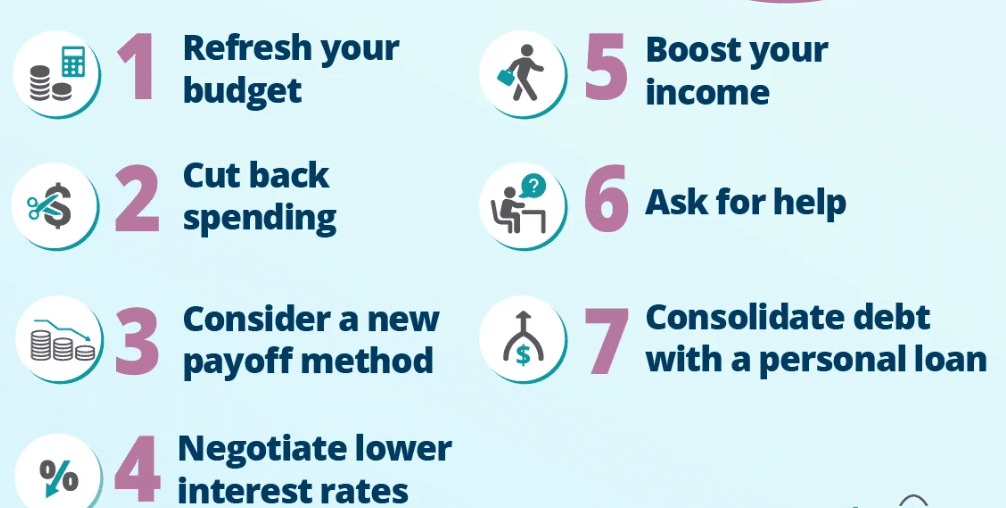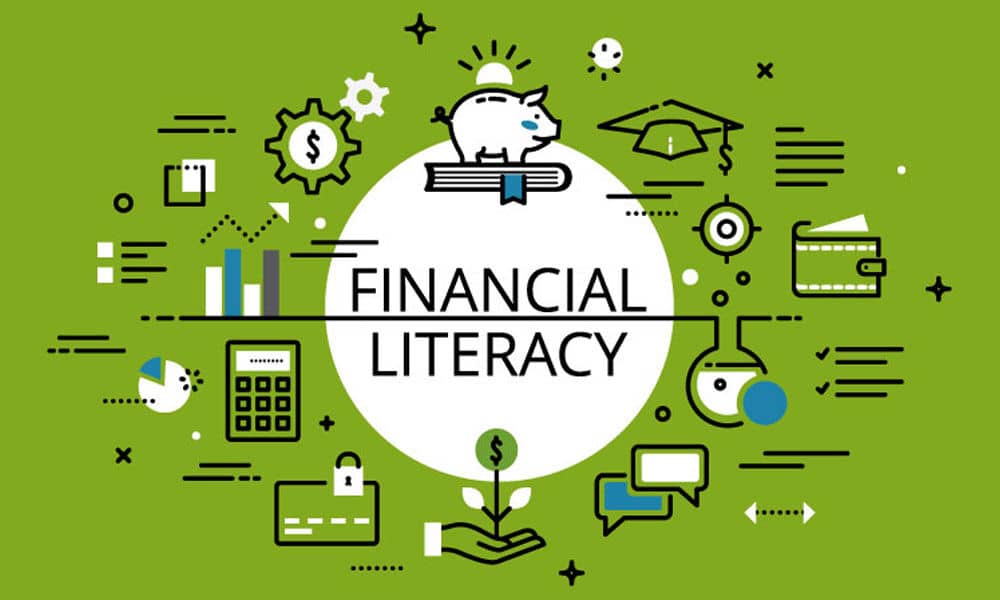Financial insecurity, a pervasive issue impacting millions globally, not only strains wallets but also weighs heavily on mental health. This article delves into the multifaceted challenge of financial anxiety, exploring its roots and manifestations. It aims to equip readers with practical strategies to navigate this complex terrain, from understanding the psychological underpinnings of financial stress to adopting actionable steps towards financial stability. By shedding light on this often overlooked aspect of financial health, the post seeks to guide readers toward a path of financial empowerment and emotional well-being.
Contents
Understanding Financial Anxiety

Financial anxiety, a specific type of stress related to the uncertainty and fear surrounding one’s financial situation, can manifest in various forms – from constant worry about paying bills to a paralyzing fear of checking bank statements. Symptoms often include sleep disturbances, anxiety attacks, and a persistent sense of dread about financial matters. Understanding these symptoms is crucial in recognizing the psychological impacts of financial stress, which can range from mild unease to severe anxiety disorders. Acknowledging and understanding one’s financial anxiety is the first step towards addressing it, a process that begins with self-awareness and a willingness to confront financial fears head-on.
Financial anxiety is not just a matter of poor money management; it’s deeply intertwined with one’s mental health and overall well-being. This kind of stress can be triggered by various factors, including job loss, debt, or even the societal pressure to maintain a certain lifestyle. Understanding the root causes of one’s financial anxiety is essential in developing effective coping strategies. Whether it’s through self-reflection or seeking professional advice, identifying the specific triggers of financial stress can pave the way for more targeted and effective interventions.
Budgeting and Financial Planning

A structured budget is a cornerstone of financial stability, acting as a tool to manage money effectively and reduce financial anxiety. Creating and sticking to a budget helps in tracking expenses, identifying unnecessary expenditures, and reallocating resources toward more critical needs or savings. The process begins with a thorough assessment of income and expenses, followed by setting achievable financial goals, whether short-term or long-term. This practice instills a sense of control over one’s finances, significantly reducing the anxiety associated with financial uncertainty.
The use of budgeting tools and apps can simplify this process, providing real-time insights into spending patterns and financial health. Additionally, the incorporation of financial goals into the budgeting process serves as a motivational tool, encouraging individuals to make more informed and disciplined financial decisions. It’s important to remember that budgeting is not about restriction but about making smarter choices with available resources. By gaining clarity and control over their finances, individuals can alleviate the stress associated with financial insecurity.
Building an Emergency Fund

An emergency fund acts as a financial safety net designed to cover unexpected expenses such as medical emergencies, car repairs, or sudden job loss. The peace of mind that comes from having an emergency fund cannot be overstated; it is a critical buffer against financial shocks that can otherwise lead to severe anxiety. The first step in building this fund is to determine an achievable target amount, typically three to six months’ worth of living expenses, and then to devise a consistent saving strategy to reach this goal.
Starting an emergency fund can be as simple as setting aside a small, manageable portion of each paycheck. This process may require some adjustments in spending habits, prioritizing savings over non-essential expenditures. The key is consistency and perseverance, even if the contributions are small at first. Over time, the emergency fund grows, offering not just financial backup but also significant psychological relief, knowing that there’s a cushion to fall back on during hard times.
Debt Management

Effective debt management is vital in reducing financial anxiety. High levels of debt can be overwhelming, leading to a constant state of stress and worry. The first step in managing debt is to create a comprehensive list of all debts, including their interest rates and monthly payment requirements. This clarity allows for the development of a targeted debt reduction strategy, prioritizing high-interest debts or opting for consolidation methods to simplify payments and potentially reduce interest rates.
One effective strategy is the snowball method, where smaller debts are paid off first, building momentum as each one is cleared. Alternatively, the avalanche method focuses on paying down debts with the highest interest rates first. Both strategies have psychological and financial benefits, either through the quick wins of the snowball method or the long-term interest savings of the avalanche method. Seeking professional financial advice can also be beneficial, especially for those feeling overwhelmed by their debt situation, as it can provide personalized strategies and emotional support.
Increasing Financial Literacy

Financial literacy is a crucial tool in combating financial anxiety. A lack of understanding about financial matters can exacerbate stress and lead to poor financial decisions. Engaging in self-education about financial concepts and products can empower individuals, enabling them to make informed decisions. This education can range from understanding basic budgeting and savings principles to more complex topics like investments and retirement planning.
There are numerous resources available for increasing financial literacy, including books, online courses, and workshops. Many of these resources are free or low-cost, making financial education accessible to a wide audience. Regularly consuming financial news and following reputable financial advisors on social media can also help in staying informed about economic trends and best practices. Over time, increased financial knowledge can lead to greater confidence in managing money, significantly reducing the anxiety associated with financial decisions.
Seeking Professional Help

There are situations where professional financial advice becomes necessary, especially when financial stress becomes too overwhelming to handle alone. Recognizing the need for professional help is a critical step toward financial well-being. Financial advisors and counselors can provide personalized advice based on an individual’s unique financial situation, offering strategies for debt management, savings, and investments that might not be obvious to the layperson.
When choosing a financial professional, it’s important to look for someone with credible qualifications and a good track record. Many financial advisors offer a free initial consultation, allowing potential clients to gauge their compatibility and expertise. Additionally, there are non-profit organizations and financial therapy services that specialize in helping people with financial stress and anxiety. Seeking professional help not only provides practical financial solutions but also emotional support, ensuring that individuals do not have to navigate their financial journey alone.
Mindfulness and Stress Reduction Techniques

Mindfulness and stress reduction techniques can be powerful tools in managing the emotional aspects of financial stress. Mindfulness involves staying present and fully engaged in the current moment, which can help break the cycle of worry and anxiety about future financial uncertainties. Techniques like meditation, deep breathing exercises, and yoga can aid in cultivating mindfulness and reducing overall stress levels. These practices help in developing a more balanced perspective towards finances, allowing individuals to approach their financial situation with a calmer, more focused mindset.
Incorporating these techniques into daily routines can have a profound impact on one’s mental health. Regular practice of mindfulness can lead to increased emotional resilience, enabling individuals to face financial challenges without being overwhelmed. Additionally, mindfulness can improve decision-making skills, a critical aspect of managing finances effectively. By reducing stress and enhancing focus, mindfulness practices can transform the way individuals perceive and handle their financial situations, leading to a more harmonious relationship with money.
Building a Support System

Having a strong support system is crucial in overcoming the challenges of financial anxiety. Sharing experiences and concerns with trusted family members, friends, or financial support groups can provide emotional relief and practical advice. These support networks offer a platform for individuals to discuss their financial struggles openly, breaking the stigma and isolation that often accompany financial difficulties. Support systems can also be a source of encouragement and accountability, helping individuals stay committed to their financial goals.
Engaging in community forums or online groups dedicated to financial well-being can also be beneficial. These platforms often provide a wealth of shared experiences and strategies from people who have faced similar financial challenges. Additionally, professional financial support groups or counseling sessions can offer structured guidance and peer support. Building and maintaining a supportive community not only helps in navigating financial challenges but also fosters a sense of belonging and shared purpose, contributing to overall well-being and resilience.
Embracing Financial Wellness and Peace of Mind
Overcoming the anxiety of financial insecurity is a multifaceted journey that involves practical financial management and emotional well-being. By implementing effective strategies like budgeting, debt management, and building an emergency fund, individuals can gain control over their finances. Equally important are mindfulness practices, seeking professional help, and nurturing a supportive community, which address the psychological aspects of financial stress. This holistic approach fosters not just financial stability but also mental peace and resilience, empowering individuals to navigate their financial landscape with confidence and tranquility.

